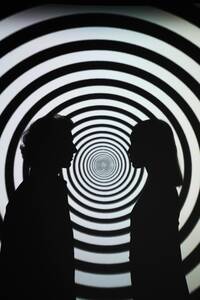
27 Oct Psychedelics: Adverse Events and Reports of Sexual Misconduct
MedicalResearch.com Interview with:
Daniel J. Kruger, PhD
University of Michigan
MedicalResearch.com: What is the background for this study?
Response: A team of researchers from the University of Michigan and University at Buffalo teamed up with psychedelic advocates and therapists to document some of the challenges with psychedelics. They surveyed over a thousand psychedelic users about their adverse experiences and the experiences they have heard from others.
Most reported being frightened, sadness, loneliness, and feeling their body tremble or shake at times. Some people experienced panic, paranoia, felt that they are dead, or that the state they were in would last forever. One in ten participants had adverse physical reactions. For most people having these experiences, they are rare or happen sometimes, but they are still significant. Most of the people that experienced a severe adverse event did not have guidance from someone who was knowledgeable about psychedelics.
A small portion of participants knew about an incident of inappropriate sexual contact by a psychedelic sitter, guide, or practitioner, the perpetrators were mostly underground guides and friends or acquaintances.
MedicalResearch.com: What are some of the adverse experiences potential users should be aware of?
Response: People can become frightened, sad, or anxious. Most people using psychedelics experience these feelings, though they do not have them most of the time. About a third of people experience paranoia, feel like they are dead, or feel that they are going insane. Again, though people report having these experiences, very few report experiencing them often.
MedicalResearch.com: What recommendations do you have for future research as a results of this study?
Response: We need safe, regulated environments for people seeking psychedelic experiences and psychedelic therapy. The lack of oversight makes protecting people more difficult, people may not want to report perpetrators out of fear of getting in trouble themselves and the difficulty of pursuing legal justice in foreign countries they may be just visiting for the retreat. Psychedelic experiences can be very intense and even people who have used them many times can have difficulties. It is essential to prevent, identify, manage, and treat adverse events during psychedelic experiences to ensure the safety and well-being of the participants and the facilitators.
MedicalResearch.com: Is there anything else you would like to add? Any disclosures?
Response: There is a lot of investment in clinical trials to obtain FDA approval for psychedelics in specific therapeutic applications. This research complements these efforts in promoting public health more broadly, as most people are still using psychedelics outside of clinical settings, even in places where psychedelic-assisted psychotherapy is legal. Legal psychedelic-assisted psychotherapy is very expensive. Having an informed public and accessible psychedelic-assisted psychotherapy that is well regulated would be ideal.
We do not have any conflicts of interest.
Citation:
Psychedelic Therapist Sexual Misconduct and Other Adverse Experiences Among a Sample of Naturalistic Psychedelic Users
Daniel J. Kruger, Jacob S. Aday, Christopher W. Fields, Nicholas Kolbman, Nicolas Glynos, Julie Barron, Moss Herberholz, and Kevin F. Boehnke
Psychedelic Medicine Sept 2044
https://doi.org/10.1089/psymed.2024.00
The information on MedicalResearch.com is provided for educational purposes only, and is in no way intended to diagnose, cure, or treat any medical or other condition.
Some links may be sponsored. Products are not endorsed.
Always seek the advice of your physician or other qualified health and ask your doctor any questions you may have regarding a medical condition. In addition to all other limitations and disclaimers in this agreement, service provider and its third party providers disclaim any liability or loss in connection with the content provided on this website.
Last Updated on October 27, 2024 by Marie Benz MD FAAD
